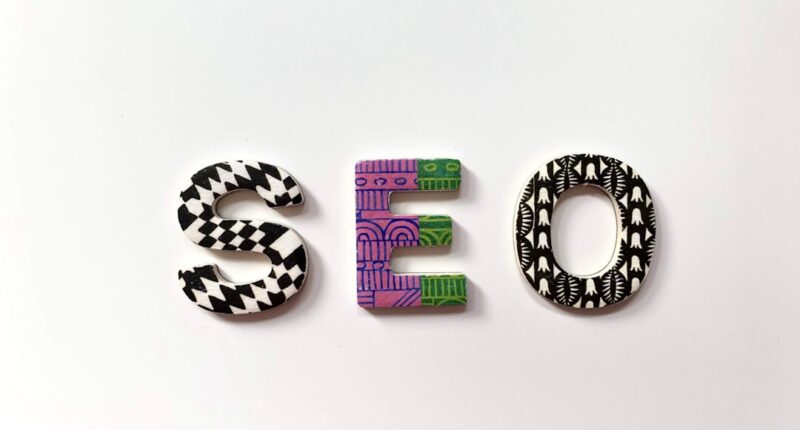The way businesses interact with their target audience has changed dramatically as a result of the explosive growth of digital marketing in recent years. Digital platforms have replaced traditional methods for marketers due to the proliferation of digital devices & the growth of the internet. Reaching customers in their primary online environment is the driving force behind this change. Email marketing, content marketing, search engine optimization (SEO), and social media marketing are just a few of the tactics that fall under the umbrella of digital marketing.
Key Takeaways
- Digital marketing has seen a significant rise in recent years, with businesses shifting their focus to online platforms for reaching their target audience.
- Traditional marketing methods are on the decline as digital marketing offers more cost-effective and targeted strategies for reaching consumers.
- User-generated content (UGC) plays a crucial role in digital marketing, as it helps build trust and authenticity among consumers and creates a sense of community around a brand.
- Influencer marketing has become a powerful tool in the digital age, with influencers having the ability to sway consumer purchasing decisions and build brand awareness.
- Social media marketing has a significant impact on consumer behavior, as it allows for direct interaction with brands and influences purchasing decisions through targeted advertising and engaging content.
With the help of these strategies, companies can target particular demographics, reach a worldwide audience, and track the success of their campaigns in real time. Utilizing data and analytics more frequently in marketing decisions is another factor contributing to the rise of digital marketing. Digital channels offer companies a wealth of information about the habits, tastes, and brand interactions of their target market.
With the help of this data, marketers may develop highly tailored and targeted advertisements that connect with customers more strongly. Also, when compared to conventional marketing strategies, digital marketing offers more adaptability and agility. Based on real-time data, marketers are able to quickly modify their strategies and continuously optimize their efforts for optimal impact. Since today’s business environment is technology-driven and fast-paced, digital marketing has become an essential part of effective marketing strategies. The Rise of Consumer Control.
Customers now have greater control over the content they interact with and can ignore traditional advertising thanks to the development of ad-blocking software, DVRs, and streaming services. As a result, using traditional methods to reach their target audience is becoming more & more difficult for businesses. Traditional Marketing’s Cost and Measurability.
For businesses looking for a high return on investment, traditional marketing is less appealing because it is typically more expensive and less measurable than digital marketing. On the other hand, digital marketing provides much more personalization and targeting, enabling companies to target particular demographics & monitor campaign efficacy in real time. The Limitations of Traditional Marketing. Traditional marketing lacks targeting & measurement, which makes it challenging for companies to maximize their marketing expenditures and establish genuine connections with their target audience.
As a result, realizing the shortcomings of traditional approaches in the current digital era, many companies have redirected their attention and resources towards digital marketing. In digital marketing, user-generated content, or UGC, has become a potent tool that lets companies use the originality and inventiveness of their customers to market their brands. Anything produced by users, such as blogs, videos, social media posts, and reviews, is referred to as user-generated content (UGC). This kind of content has a lot of sway because it originates from actual customers who have used the goods or services of the brand. Because customers are more likely to believe peer opinions than traditional advertising, user-generated content (UGC) contributes to the credibility and trust-building of a brand.
UGC not only fosters trust but also offers businesses useful social proof. When customers witness other people interacting positively with a brand, they are more likely to feel secure in their choice to follow suit. Also, UGC offers a plethora of real content that companies can use to improve their marketing initiatives.
Businesses can foster a feeling of community and audience engagement by featuring user-generated content (UGC) on their own websites or social media platforms. As a whole, user-generated content (UGC) has grown to be a crucial component of digital marketing strategies, giving companies the ability to leverage the influence of their devoted clientele to increase reputation and loyalty. In the digital era, influencer marketing has taken center stage. It enables companies to market their goods and services by reaching out to the vast social media followings of influencers. People who have amassed a sizable and active fan base on social media sites like YouTube, Instagram, & TikTok are known as influencers.
These people have the ability to influence customer opinions and purchase decisions by providing real and relatable content. Influencer partnerships enable brands to connect with consumers on a genuine level and reach new audiences in ways that traditional advertising just cannot match. Because influencers with a devoted following within those communities enable businesses to target niche markets and particular demographics, influencer marketing is especially successful. Reaching customers who are most likely to be interested in a company’s goods or services is ensured by this level of targeting.
Influencer marketing also offers a degree of legitimacy and authenticity that conventional advertising does not. Customers are more likely to see a product or service as a sincere recommendation than as a paid advertisement when they see a trusted influencer endorsing it. Consequently, influencer marketing has developed into a potent instrument for companies trying to establish a genuine & meaningful connection with their target audience.
The way that consumers find, investigate, and buy goods and services has been significantly influenced by social media marketing. With billions of users globally, social media platforms are now a vital conduit for companies to communicate with their target market. Businesses can interact with customers in real time through social media, share insightful content, and create enduring relationships that foster steadfast loyalty. Also, social media uses data analytics to give businesses insightful information about the preferences & behavior of their customers.
The ability for customers to conduct research & base their purchase decisions on peer recommendations and reviews is one of social media marketing’s most important effects on consumer behavior. Customers can share their brand and product experiences on social media platforms, which helps their peers make better purchasing decisions. Since people are more likely to believe the advice of friends and family than traditional advertising, social proof has become an important consideration in consumer decision-making. Social media has also changed how customers communicate with brands, enabling personalized & two-way exchanges that foster loyalty and trust.
Because of this, social media marketing has developed into a vital tool for companies trying to comprehend and affect customer behavior in the current digital environment. Switching from mass marketing to tailored strategies. One of the main characteristics of the digital age has been the move towards more specialized and focused marketing tactics.
Businesses used mass marketing strategies in the past, hoping to reach as many people as possible with extensive advertising campaigns. But as digital platforms & data analytics have grown in popularity, businesses have moved to more focused approaches that place an emphasis on forming personal connections with each customer. The Growth of Customization and Content Marketing.
An important feature of this transition is the focus on content marketing as a way to give customers something of value & foster brand trust. Businesses can establish themselves as thought leaders in their fields and reliable information sources by producing interesting and relevant content that appeals to their target audience. By customizing their messaging & products to each customer’s unique preferences, businesses can now offer personalized experiences at scale thanks to the growth of automation and artificial intelligence. The Secret to Seamless Engagement: Omnichannel Experiences. An important development in marketing strategies is the emphasis on omnichannel experiences, or experiences that flow naturally across different digital platforms.
Customers want the same brand experience from businesses on all platforms, including websites, email addresses, and social media. Companies are realizing how important it is to design unified experiences that satisfy customers at every turn and add value. Because of this, omnichannel strategies that provide seamless customer experiences and foster enduring customer loyalty are now given top priority in marketing strategies. Using digital platforms as the main avenue for customer interaction and business expansion is how marketing will develop in the future.
Businesses need to modify their approaches to meet the demands of a world that is becoming more and more digital as consumer behavior and technology progress. This entails spending money on digital marketing strategies to comprehend customer behavior and preferences, such as influencer partnerships, social media marketing, content production, and data analytics. Also, new and developing technologies like augmented reality, virtual reality, and artificial intelligence will influence marketing in the future by improving customer experience and creating new avenues for interaction. In ways that were previously impractical, these technologies will enable companies to produce immersive experiences that enthrall customers and foster brand loyalty. Also, companies must prioritize ethics and transparency in their marketing strategies as consumer privacy concerns only get bigger.
Sustaining long-term relationships and promoting business success will require establishing trust with customers. In conclusion, traditional marketing techniques are dwindling as a result of the rise of digital marketing, which has completely changed how companies interact with their customers. In the digital age, influencer partnerships and user-generated content have become effective strategies for increasing brand awareness and loyalty. Customers’ discovery & interaction with brands have been greatly influenced by social media marketing.
Omnichannel approaches that meet customers where they are & personalized experiences have become priorities in the evolution of marketing strategies. Looking ahead, businesses will need to embrace emerging technologies and digital platforms in order to succeed in the marketing industry.
FAQs
What is traditional marketing?
Traditional marketing refers to any form of marketing that has been used by companies for decades, such as print advertisements, television commercials, radio ads, direct mail, and billboards.
What is digital marketing?
Digital marketing encompasses all marketing efforts that use an electronic device or the internet. This includes online advertising, social media marketing, email marketing, and content marketing.
Is traditional marketing becoming obsolete?
While traditional marketing is still used by many companies, there is a growing trend towards digital marketing due to its ability to reach a larger audience and provide more targeted and measurable results.
What are the advantages of traditional marketing?
Traditional marketing can be effective for reaching local audiences, building brand recognition, and reaching older demographics who may not be as active online.
What are the advantages of digital marketing?
Digital marketing offers the ability to reach a global audience, target specific demographics, track and measure results in real-time, and engage with customers on a more personal level.
Is it necessary to choose between traditional and digital marketing?
Many companies use a combination of traditional and digital marketing strategies to reach a wider audience and achieve their marketing goals. Each type of marketing has its own strengths and can be used in conjunction with the other.





